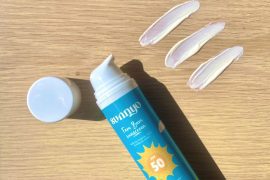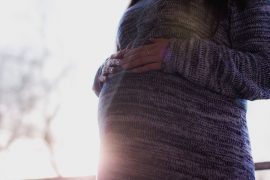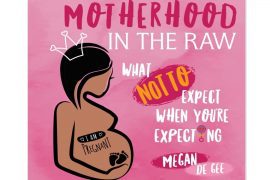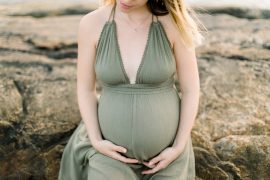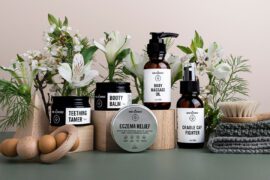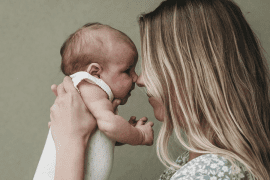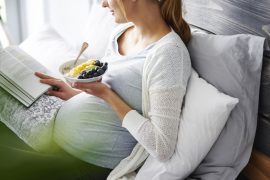By Hannah Schenker
Exposure to even small amounts of Endocrine Disrupting Chemicals (EDCs) leads to billions of dollars in healthcare costs, says a new report from The Lancet Diabetes and Endocrinology, reported in the New Zealand Herald this week. They also interfere with your fertility.
These EDCs are ever-present in our overly chemical world, and it’s hard to escape them. They are found in our plastics, cleaning products, canned food, personal care products (like cosmetics and tampons), toys…the list goes on. These chemicals have the power to alter our hormone function, and have been linked to neurological and behavioural problems like attention-deficit/hyperactivity disorder (ADHD) and autism, as well as obesity, diabetes, some cancers, male infertility and altered hormones, endometriosis (the abnormal growth of tissue outside the uterus – which can make it difficult to conceive), fibroids and heavy periods.
For those trying to conceive, it is especially important to consider what you can do to reduce your exposure, and hopefully assist conception. EDCs “interfere with the production, release, transport, action, breakdown and elimination of the body’s natural hormones” by mimicking the effects of estrogen – also called Xenoestrogens. These days up to 15% of people experience infertility when trying for a baby (some say even more), and either go it alone or head down the assisted fertility route. But could the cause be chemical, thanks to these EDCs? And is there anything we can do?
Dioxins in particular may cause endometriosis, and have been found in the bleached rayon in tampons, which is almost too ridiculous to consider. How many women use tampons from their teens onward without awareness of what is actually inside them? Babies that are exposed to these toxins while in utero may have their reproductive organs and fertility altered, resulting in early puberty. We need to talk about this, with every girl and woman we know. So – switch to organic now or consider an alternative, like a Moon Cup or reusable cloth pads.
Phthalates are cause for concern. They disrupt your hormones, affecting fertility in both men and women, as well as your child’s development. Nasty stuff. These plasticisers are used to soften plastic and to give lotions their consistency. They are found in cosmetics, deodorants, nail polish, hair spray, shampoo as well as things like vinyl flooring and your everyday plastic bags and lunch wrap. Seriously, they are everywhere unless you are living as chemical-free as you possibly can – which means shopping for organic and plant-based products and lotions, reading ingredients lists’ to avoid any synthetic chemicals, and avoiding fragrances. Replace your plastic containers with alternatives, forget about lunch wrap and start bringing your reusable cloth bags everywhere you go.
BPA is another biggie. Bisphenol A is found in plastic drink bottles, plastic baby bottles, food packaging, thermal/eftpos receipts, the linings of some tins and even in medical supplies, and 95% of us have it already in our bodies. Premature babies are being exposed to this chemical while they are in intensive care. BPA is toxic even in small amounts, as it acts in our bodies like a hormone drug, attaching itself to estrogen receptors and producing an estrogen-like response. Exposure to even minute amounts has the potential to cause male fetuses to develop abnormally. It affects male sperm and prostate development and in women, the higher the BPA levels, the less chance of successful pregnancy, plus an increased risk of miscarriage and recurrent miscarriages. It affects the quality of the sperm, the egg and the embryo. Why nobody is screaming this from the rooftops is quite frankly disturbing. To go even further, BPA has been found in breast cancer cells, which means it is also considered carcinogenic.
This goes beyond trying to get pregnant – these chemicals are affecting everyone, and these are just the some of the ones being talked about, there are more (in New Zealand, Round Up, also known as Glyphosate is a biggie, as it is sprayed in gardens, on roadsides, all over farms and is also used in 1080).
What on earth can we do?
- Eat organic as much as you possibly can, thus avoiding sprays loaded with chemicals.
- Get rid of your plastic containers and find alternatives – they are out there. Use glass or stainless steel.
- Forget about loads of plastic toys – replace them with wooden toys. If you’re still in the trying-to-get-pregnant stage, this may for you further down the track.
- Filter your water at home.
- Try not to handle receipts.
- Avoid tinned foods – stick with fresh, or go for glass.
- Do not microwave in plastic containers (best not to microwave at all if possible), or put them in the dishwasher.
- Choose natural products that are pretty much safe enough to eat.
- Maintain a healthy weight by doing some moderate exercise, eating well and keeping good bowel habits – hopefully any extra estrogen will be more easily flushed from your system.
- Check out where you are living. Is there a lot of spraying going on? Pesticides, herbicides, insecticides and fungicides. Perhaps on farms, orchards or even across residential areas, like suburban Auckland being sprayed for the painted apple moth.
It may seem like a losing battle, but if you take these steps to begin living a more chemical-free life, you are doing yourself a huge favour. If more people start living this way then demand for chemical-laden products will dwindle. Change the world by choosing carefully who you support and buy from.
And if it leads to a healthy pregnancy, then of course it is all worth it.
Hannah Schenker is a freelance writer, editor and regular contributor to The Natural Parent Magazine. She lives with a touch of magic in Golden Bay, New Zealand.


